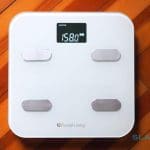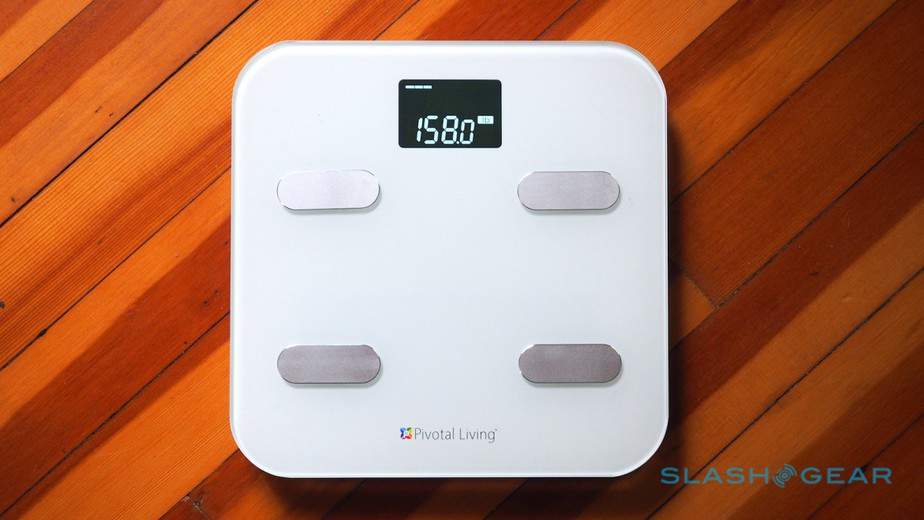Lately, it seems like new technology that makes our lives “smarter” has been hitting the market every day. Amid this seemingly endless evolution of advanced appliances comes the latest fitness home device: the smart scale.
What are smart scales?
Smart scales promise to help you optimize your weight loss by providing much more than just pounds and ounces. But are smart scales worth the money?
Does weighing yourself help you lose weight?
 More than perhaps any other, the question of whether weighing yourself aids weight loss has firmly divided the fitness world for decades. There are two clear camps on this issue. On one side are the people who say weighing themselves makes them obsess over every ounce, eventually sabotaging their weight loss efforts when arbitrary numbers take precedence over feeling good. Those same folks argue that you can track your weight without relying on a scale by gauging how your clothes fit and being mindful of your diet and appearance.
More than perhaps any other, the question of whether weighing yourself aids weight loss has firmly divided the fitness world for decades. There are two clear camps on this issue. On one side are the people who say weighing themselves makes them obsess over every ounce, eventually sabotaging their weight loss efforts when arbitrary numbers take precedence over feeling good. Those same folks argue that you can track your weight without relying on a scale by gauging how your clothes fit and being mindful of your diet and appearance.
In the other camp are the folks who argue that if they don’t weigh themselves, they don’t hold themselves accountable. That lack of accountability, they argue, quickly turns into a runaway train.
But what does science say?
Are smart scales worth it?
“Behavior science suggests it’s important to record weight to evaluate progress, identify patterns and reverse small weight gains before they become problems,” says Graham Thomas, an associate professor at the Brown University Weight Control Center in Providence. A two-year Cornell study backed up Thomas’ claims. In the study, participants were instructed to lose 1% of their body weight while stepping on a scale daily. Using a spreadsheet or a graph to track their weight, participants were able to maintain weight loss from the first year into the second year.
Since studies have shown that 40% of weight lost is regained within one year and almost 100% of weight lost is regained within five years, retention is vital to a dieter’s overall success. The act of stepping on a scale seemed to strengthen the participants’ other fitness-related behavior, like food portioning and dietary control.
The emergence of smart scales
Smart scales are fairly intuitive appliances, and they look almost identical to their analog counterparts. Despite the similar displays, though, smart scales give you a lot more than just your body weight. They’ll tell you anything from your body composition with muscle and body fat percentages to your body mass index, bone density and water percentage. Not all smart scales possess every one of those features, but even a few affordable models come with nearly all of them.
Whereas a regular scale registers muscle gain as only an increase in your overall weight, a smart scale typically tracks the holistic makeup of your body. Smart scales can either be Bluetooth or Wifi enabled, and they track your progress by syncing up to your phone. While most of the larger brands come with their own apps that don’t play well with alternative software, lesser-known brands are often more compatible with the fitness app of your choosing.
3 of the best smart scales to consider
Smart scales range from $30 to well over $100. Nearly $100 can separate smart scales that feature very similar perks, but a specific option might make that splurge worth it for certain exercise enthusiasts. If you’re going all in on a smart scale, consider these models—and their wide range of price tags—as a starting point.
- The Eufy BodySense scale and Weight Gurus Bluetooth Smart Scale stand on the budget-friendly end of the spectrum, with both costing less than $50. Both possess the impressive features of pricier models, measuring muscle mass and bone density as well as syncing up to various health apps on your phone through Bluetooth. The Weight Gurus Smart Scale also has an internal memory for when your phone is unavailable, plus the capacity for up to eight users.
- The Withings Body Cardio tops out at $180. But in addition to measuring your entire body composition, this smart scale also measures pulse wave velocity and cardiovascular health.
- The Fitbit Aria comes from a recognizable, trusted brand and supports up to 350 pounds. However, it lacks the water percentage measuring feature and is only compatible with FitBit app, as opposed to lesser known brands that work well with Google Fit, Apple Health and FitBit. At $130, it doesn’t quite tip the scale, but it’s still one of the pricier options on the market.
- Any smart scale choice is an investment that should enhance your health through multiple life stages, which is what makes the pricy, futuristic-looking Qardio Base 2 stand out. The scale earned the PC Magazine Editor’s Choice award, thanks in part to its unique pregnancy mode.
Weighing yourself has been part of fitness since our spear-throwing ancestors invented the simplest technology to determine their weight. As technology has become more powerful and nuanced, smart scales are providing the customized data that satisfies today’s techie fitness scene. But what model, and price tag, fits your needs is a choice as personal as the number on the scale itself.
I’m not just a supplement analyst. I’m an extremely qualified one! I am a Certified Nutrition Coach (CNC) and actually received my certification directly from the National Academy of Sports Medicine. I am also a Nutrition & Wellness Consultant, certified by the American Fitness Professionals Association (AFPA).


